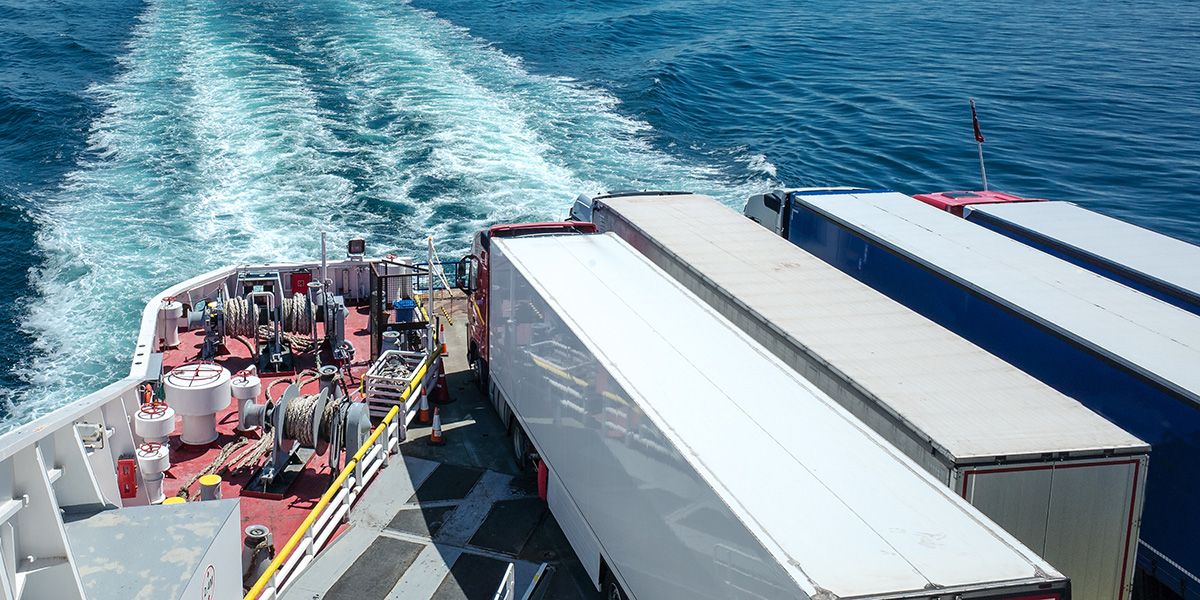What is ‘groupage’? The issue at the heart of the food and drink export crisis

Despite tentative recovery trends overall, the situation for food and drink exports is still dire with export numbers down by over 75%, according to latest figures from the Food and Drink Federation (FDF)
Comparison between January 2020 and January 2021 figures shows a significant drop in exports to the EU to the tune of £0.75 billion. Exports to other markets are also down by 11%. Non-tariff barriers as well as the impact of the Covid-19 pandemic and stockpiling ahead of the end of the transition period all played a role in the collapse.
Of particular concern for small food and drink producers are the issues around groupage – the ability to export as part of mixed consignments currently hindered by new rules assuming full-truckload haulage. This affects Scotland’s fishing industry, in particular, as the relatively small size of exporters and the time sensitivity of its goods make any delays or additional burdens inoperable.
Speaking at a hearing of the Scottish Parliament’s Culture, Tourism, Europe and External Affairs Committee, Martin Reid, director of Scotland and Northern Ireland, Road Haulage Association, said that teething problems aside, ‘there are fundamental issues that [exporters] need help with’ and impact is still significant weeks after the introduction of the new systems.
The FDF figures show that exports have fallen in all EU markets, including Ireland, Germany, Portugal, Italy, and Austria. Ireland used to be the biggest importer of UK food and drink within the EU but its share has fallen from 18% to just 5%. Despite a slight recovery in February, volumes are still down by over 8%.
Speaking to the BBC, the chief executive of British Corner Shop (exporter of British food and drinks across the EU), Mark Callaghan, warned that his company has had to cut down on product range to try and find a solution to continue its trade. It is also planning to open a distribution centre on mainland Europe – so taking jobs from the UK, while it continues to struggle with a drop in sales.
The slump in trade is seen across the top food and drink categories normally exported from the UK to the EU. Salmon and beef exporters have managed to move only 10% of their January 2020 volumes, and cheese exports plummeted over 85%. Whiskey, which is the largest UK food and drink export to the EU, lost about £60 million in trade as a result of both Brexit and Covid-19 regulations impacting on the hospitality sector.
A survey commissioned by the Federation of Small Businesses in March shows that 1 in 5 small business exporters to the EU have at least temporarily halted shipments, and around 4% have decided to suspend exports altogether. “Smaller traders are struggling, and considering whether exports are worth the effort anymore,” the organization’s national chairman Mike Cherry said in a recent statement.
The data matches the findings of the British Chambers of Commerce whose Q1 survey released on 12 April shows 41% of exporters have decreased sales in the first half of the year. Those participating in the survey point towards Brexit and the impact of Covid-19 as the biggest causes of the slump. Businesses faced shipping delays, increased cost of transporting goods and extensive paperwork. Crucially, many view these problems as structural in nature rather than short term issues to be ironed out as companies adjusted to the new realities of the UK-EU trading relationship.
April 20, 2021
Brexit Spotlight is run by Another Europe Is Possible. You can support this work by joining us today. The website is a resource to encourage debate and discussion. Published opinions do not necessarily represent those of Another Europe.





